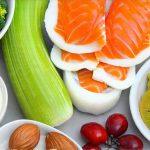The digestive system is an incredibly complex and fascinating machine, constantly working to break down food into usable energy and nutrients. When we drastically alter our dietary fat intake – particularly by removing significant amounts of animal fats from a previously fat-rich diet – the system can sometimes react in unexpected ways. One common consequence many people experience is a temporary shift towards softer stool formation. This isn’t necessarily cause for alarm, but understanding why it happens and what you can do about it provides peace of mind and supports optimal digestive health. It’s crucial to remember that individual responses vary greatly depending on pre-existing conditions, overall diet quality, and the speed of dietary changes.
This phenomenon stems from several interconnected factors related to bile acid metabolism, gut microbiome adjustments, and the altered physical properties of the digested material itself. Our bodies are remarkably adaptable, but sudden shifts disrupt established equilibrium. For example, if you’ve been regularly consuming a diet high in saturated fats, your body upregulates bile production to efficiently emulsify those fats for absorption. When these fats are drastically reduced, the excess bile acid can act as a mild intestinal irritant, drawing water into the colon and contributing to looser stools. Furthermore, the gut microbiome adapts to dietary patterns; a sudden change in food source necessitates shifts in bacterial populations, which can temporarily impact stool consistency. Understanding how your body reacts after breaking diet is crucial for maintaining digestive health.
Understanding Bile Acid Malabsorption & Its Role
Bile acids are essential for fat digestion and absorption. Produced by the liver and stored in the gallbladder, they’re released into the small intestine when we eat fats. They act like detergents, breaking down large fat globules into smaller droplets that enzymes can then access more easily. The vast majority of bile acids are reabsorbed further down the digestive tract (specifically in the ileum) and recycled back to the liver – this is a remarkably efficient system. However, when fat intake dramatically decreases, or if there’s an issue with the ileal absorption capacity, unrecycled bile acids can reach the colon.
These unabsorbed bile acids have several effects: – They stimulate water secretion into the colon, leading to looser stools. – They can also mildly irritate the intestinal lining, contributing to discomfort and altered motility. – Over time, persistent malabsorption of bile acids can potentially lead to diarrhea or other digestive issues, although this is less common with temporary dietary changes. It’s important to distinguish between a natural response to reduced fat intake and a more serious underlying condition affecting bile acid absorption; consulting a healthcare professional is always advisable if you have concerns. A similar reaction might occur after weekend overindulgence.
The body attempts to compensate for the altered bile acid flow. When it detects fewer fats needing emulsification, production gradually decreases. However, this isn’t an instantaneous process, leading to a temporary surplus that explains why softer stools often appear shortly after reducing animal fat consumption. This adaptation period typically resolves within a few weeks as the liver adjusts its output and the gut microbiome stabilizes.
The Gut Microbiome & Dietary Shifts
The human gut harbors trillions of microorganisms – collectively known as the gut microbiome – playing a crucial role in digestion, immunity, and overall health. This ecosystem is incredibly sensitive to dietary changes. A diet rich in animal fats fosters specific bacterial populations that excel at digesting those fats. When you significantly reduce fat intake, these bacteria may decline while others, better suited for processing carbohydrates or plant-based foods, proliferate. This microbial shift can temporarily disrupt the balance and contribute to altered stool consistency.
This isn’t necessarily a negative change; it represents the gut adapting to its new food source. However, rapid shifts can cause temporary bloating, gas, and changes in stool frequency and texture. The process of microbiome adaptation is complex and individualized. Factors like pre-existing gut health, antibiotic use, and stress levels all influence how quickly and effectively this shift occurs. Supporting a diverse microbiome through prebiotic (foods that feed beneficial bacteria) and probiotic (live microorganisms) rich foods can ease the transition. You may also experience similar effects from meal skipping.
Strategies for Mitigation & Support
While softer stools after reducing animal fats are often temporary and benign, there are several strategies you can employ to minimize discomfort and support healthy digestion during this transition period. Firstly, gradual reduction is key. Instead of abruptly eliminating all animal fats, slowly decrease your intake over several weeks or months, allowing the body time to adjust. Secondly, ensure adequate fiber intake. Fiber adds bulk to stool, helping to regulate bowel movements and counteract the water-drawing effect of excess bile acids.
Finally, staying well-hydrated is crucial. Water helps maintain stool consistency and supports overall digestive function. Consider incorporating fermented foods like yogurt (with live cultures), kefir, or sauerkraut into your diet to support a healthy gut microbiome. If symptoms persist beyond a few weeks, or if they are severe, it’s essential to consult with a healthcare professional to rule out any underlying medical conditions or malabsorption issues. Remember that listening to your body and making adjustments based on its signals is always the best approach. Changes in stool can also occur after removing dairy.
Reintroducing Healthy Fats (Strategically)
Completely eliminating fats isn’t usually necessary or even healthy. Essential fatty acids are vital for numerous bodily functions, including hormone production, cell membrane integrity, and nutrient absorption. When reducing animal fat intake, focus on replacing them with healthier alternatives rather than simply removing them altogether. Excellent options include: – Avocado – Nuts & Seeds (chia, flaxseed, walnuts) – Olive Oil – Fatty Fish (salmon, mackerel)
Introducing small amounts of these healthy fats can help stimulate bile production in a controlled manner and provide the body with necessary nutrients without overwhelming the digestive system. Furthermore, focusing on whole foods provides other essential nutrients that support gut health and overall well-being. It’s also important to be mindful of portion sizes even with healthy fats, as excessive intake can still lead to digestive discomfort. The goal is a balanced approach – reducing potentially harmful saturated fats while ensuring adequate intake of beneficial unsaturated fats. Dietary changes may result in hard stool if not managed carefully, but softer stools are often experienced when making shifts like these. A change in diet can also lead to rushing through meals, further impacting digestion.


















